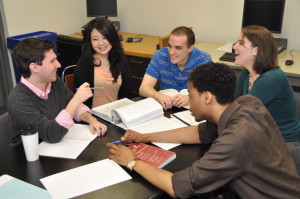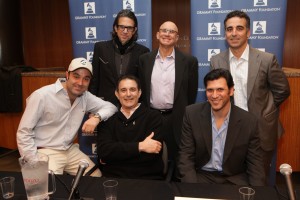
Since 1982, the Cardozo Arts & Entertainment Law Journal (AELJ) has been a leader in national and international legal scholarship. When the Journal was founded, President Ronald Reagan wrote:
I know that the Journal will display the same devotion to excellence to which Justice Cardozo was, and Yeshiva University remains, committed. As you know, I have a special interest in the arts and entertainment, and you have my congratulations and best wishes as you launch a publishing venture that will contribute to learning and scholarship in this field.
For nearly four decades, AELJ has routinely published topical legal analyses on arts, entertainment, intellectual property, First Amendment, sports, fashion, cyberlaw, and media and telecommunications law. AELJ has been recognized by legal scholars, academics, practitioners, and the judiciary both in the United States and abroad for its scholarly impact. AELJ publishes three student-edited issues annually.

Each spring, AELJ hosts a symposium that attracts scholars from across the country to discuss cutting-edge legal topics. In addition, AELJ co-sponsors events with other notable organizations, including the GRAMMY Foundation to address current issues in music and entertainment law and the Committee for Cultural Policy to discuss reforms of cultural property policy.
AELJ is proud to continue to maintain its spot as a leading journal for arts, entertainment, and sports law, and to be ranked as one of the top intellectual property journals in the nation, according to the most recent journal rankings released by the Washington and Lee University School of Law.
In 2021-22, AELJ will proudly publish its fortieth volume.
AELJ Citations
Citations and text generally conform to The Bluebook: A Uniform System of Citation (Columbia Law Review Ass’n et al. eds., 21st ed. 2020).
AELJ should be cited as: XX Cardozo Arts & Ent. L.J. YYY
For example, the 238th page of the 39th volume would be cited as: 39 Cardozo Arts & Ent. L.J. 238
